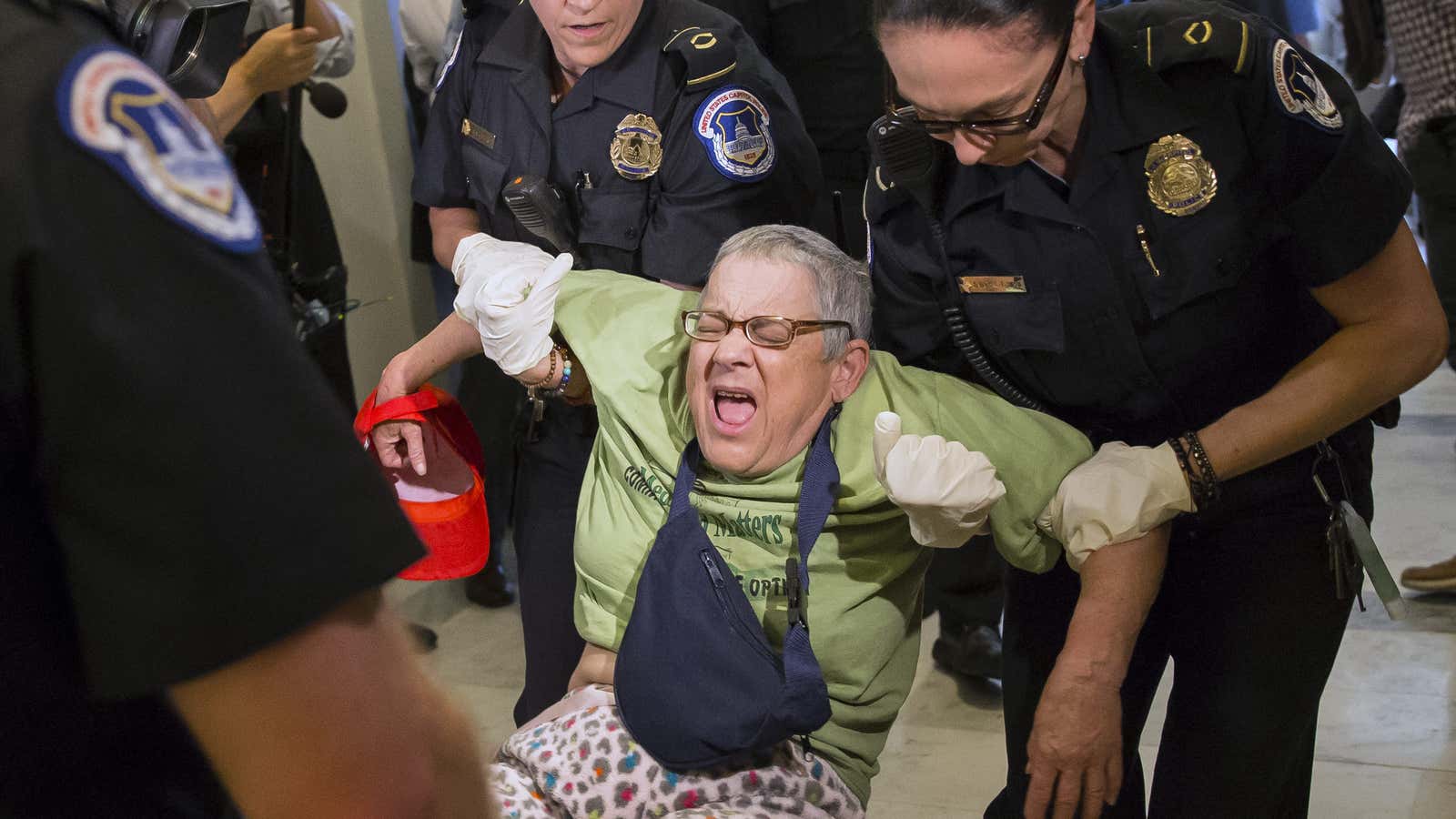The US Senate could vote as soon as this coming week on its controversial healthcare reform bill, which cuts taxes for the rich, and reduces benefits for the poor, elderly, and disabled. The next few days in Washington, and around the country, are likely to be marked with protests, rallies, and demonstrations as citizens try to convince their local senators to vote it down.
Some of the most provocative may have been the ones already held in the nation’s capitol, after dozens of disabled Americans, including those on ventilators and in wheelchairs, held a “die in” on the floor in front of Senate majority leader Mitch McConnell’s office on Thursday. “No cuts to Medicaid!” they chanted, refusing to leave.
The Capitol Police answered by physically removing demonstrators, and arresting 43 of them for “crowding, obstructing, or incommoding” (which means inconveniencing). Some were dragged from their wheelchairs, others handcuffed in them. It made for an ugly scene, one that was splashed on newspaper front pages and held up overseas as an example of America’s healthcare horrors.
Thousands of social media users shared dramatic photos from Colleen Flanagan, co-founder of Disability Action, a new political action committee (PAC), who led the call and response:
These advocates don’t want your pity, Flanagan and other activists said later. They want people to help them fight the bill.
“They’d rather go to jail than die without Medicaid,” Alison Barkoff, a disability advocate in DC, said in an interview with The Opposition.
About 10 million of the estimated 22 million disabled adults in America ages 18 to 64 depend on services that Medicaid provides. While people with disabilities account for 15% of Medicaid enrollment, they account for 42% of program spending because of their longer-term, more intensive health needs. Medicaid, for example, covers wheelchairs, lifts, and home visits from a nurse.
The long-term services under Medicaid that people with disabilities depend on are generally not available through private insurance. And they’re costly.
The Senate health care bill proposes to take away hundreds of billions of dollars from Medicaid over the next decade, and is expected to call for cuts even deeper than those in the House version of the bill. It would change the quality of life for millions, and could force many into institutions, Barkoff says. Before that happens, expect a lot more protests like Thursday’s.
